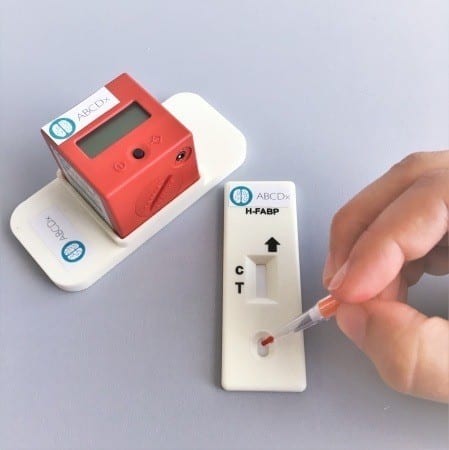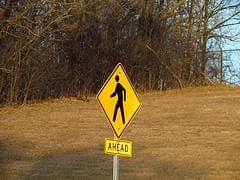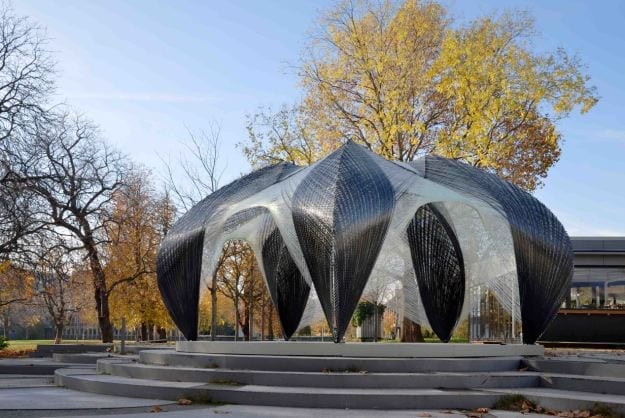
Most scientists are starting to agree that repeat, sub-concussive hits to the head are dangerous and linked to neurological disorders later in life.
A new collaborative study, though, attempted to find out why – and discovered that damage to the blood-brain barrier and the resulting autoimmune response might be the culprit.
Published in journal PLOS ONE by the University of Rochester Medical Center and the Cleveland Clinic, the research suggests a new way of thinking about concussions: That the brain degeneration observed among professional football players (including the much-publicized chronic traumatic encephalopathy) could result from an out-of-control immune response, similar to what multiple sclerosis patients experience. If so, this opens the door to investigating a vaccine or drug therapy to prevent head trauma.
Although he emphasized that the research is preliminary, co-author Jeffrey J. Bazarian, M.D., M.P.H., associate professor of Emergency Medicine at URMC, said it’s exciting to discover a theory that appears to fit with the reality of what experts observe among athletes. Bazarian worked closely with lead investigator Damir Janigro, Ph.D., professor of Molecular Medicine at the Cleveland Clinic, and 67 college football players from northeast Ohio and Rochester, N.Y., who agreed to participate in the research.
“Although the awareness of sports-related concussions is much higher, we still know very little about the long-term consequences and what happens inside the brain,” Bazarian said.
“Our theory is plausible as an explanation for how routine head hits that come with playing football can lead to severe neuro-degeneration later in life,” said Bazarian, a national expert who has served on an Institute of Medicine committee for brain injury. “If others confirm this, it could present options with drugs that influence the immune response.”
The blood-brain barrier is like a semi-permeable gate between the brain and bloodstream. No other organ has such a barrier. When the barrier is working properly, it holds in proteins and molecules that bathe the brain and protect it from foreign substances. With blows to the head, however, the barrier opens slightly and allows some proteins to leak into the bloodstream.
Researchers found that S100B, a well-accepted protein biomarker for traumatic brain injury, was present in varying degrees in the blood samples of the 67 football players after every game — even though none of them suffered a concussion. This demonstrates that even the most routine hits have some impact on the blood-brain barrier and possibly the brain itself, Bazarian said.
For the purposes of this project, however, the team wanted to explore what happens after S100B surges from the brain and enters the bloodstream. Again, they made an important finding – that the body views S100B as an enemy and begins to form antibodies against it as if it were a virus.
Researchers hypothesized that a buildup of antibodies would result in a more vigorous attack on S100B in the bloodstream. But in the process, they learned, some antibodies sneak back through the damaged blood-brain barrier to the brain and begin to harm the healthy brain cells that produced the S100B protein in the first place. This is analogous to a missile searching for a target, Bazarian said, with some unintended targets eventually falling under attack.
Researchers also showed that S100B accumulates in dendric cells, which regulate auto-immune responses. Therefore, as the blood-brain barrier repeatedly opens during the football season it might set the stage for a continuous autoimmune-type attack on the brain, they reasoned.
In multiple sclerosis a similar breakdown occurs, when the body’s own immune system damages myelin sheaths around the brain. Other health conditions that harm the blood-brain barrier include sepsis (overwhelming infection), burns, critical illness, or seizures.
The methods used to test the hypothesis involved each player giving blood samples before and after games. Researchers then analyzed the samples for S100B levels and auto-immune antibody levels. They also monitored the number of hits each player sustained by viewing game films and conducting post-game interviews, and gave each player standard cognitive and functional tests, pre-season and post-season.
In addition, a subset of 10 players from the University of Rochester received special brain scans with diffusion tensor imaging, a more sensitive MRI that can detect subtle axonal injury.
Results showed that players with the most head hits also had the highest S100B levels and elevated levels of autoimmune antibodies. Players who often remained on the sidelines had significantly lower S100B levels. In addition, the blood samples predicted abnormalities seen in the imaging tests, and correlated with observed cognitive changes.
The Latest Bing News on:
Brain injury autoimmune response
- Study shows malaria during pregnancy spikes neurological risks for babieson April 26, 2024 at 6:22 am
Symptoms of malaria range from fever, chills, and headache to fatigue, confusion, seizures, and difficulty in breathing..health. healthcare. fitness. well being. study. research. malaria. pregnancy.
- Multiple Sclerosis Research Newson April 25, 2024 at 5:00 pm
Study Reveals a Protein Called Snail May Play a Role in Healing Brain Injury Dec. 11 ... But when this response escalates, for example in the brain, it can lead to serious neurological or psychiatric ...
- Side effects of 'magic mushrooms' similar to regular antidepressantson April 24, 2024 at 7:51 am
People in a new study who took psilocybin often experienced headache, nausea, anxiety, dizziness and elevated blood pressure -- side effects similar to those seen with regular antidepressants.
- Repeated exposure to explosive blasts increases soldiers' risk of brain injuryon April 23, 2024 at 7:46 am
Soldiers can suffer brain injury if they are repeatedly exposed to explosive blasts, a new study shows. Further, the more frequently a soldier is exposed to explosions, the greater their risk for ...
- A new therapeutic target for traumatic brain injuryon April 19, 2024 at 9:39 am
For the roughly 1.5 million Americans per year who survive a traumatic brain injury, health outcomes vary widely. Not only can these injuries lead to a loss of coordination, depression, impulsivity, ...
- Brain Injury Newson April 18, 2024 at 5:00 pm
Immune Response, Not Acute Viral Infections ... Study Reveals a Protein Called Snail May Play a Role in Healing Brain Injury Dec. 11, 2023 — A new study provides us with a better understanding ...
- How the inflamed brain becomes disconnected after a strokeon April 18, 2024 at 3:37 pm
Research linking brain inflammation to broken neural “wires” creates a new opening for treating neurological disease.
- Even mild inflammation can majorly damage the brainon April 16, 2024 at 7:30 am
A new study sheds light on how even mild inflammation can cause significant damage without directly killing the brain's neurons ...
- What to Know About Inflammationon April 8, 2024 at 5:00 pm
You may experience inflammation due to some health conditions or injury. Long-term inflammation ... Inflammation is a natural part of your body’s immune response. However, long-term or chronic ...
- Severe traumatic brain injury leads to cellular immunosuppressionon March 29, 2019 at 5:28 pm
Severe traumatic brain injury (TBI) can lead to immune system ... injury is safe and does not interfere with the cellular immune response.
The Latest Google Headlines on:
Brain injury autoimmune response
[google_news title=”” keyword=”brain injury autoimmune response” num_posts=”10″ blurb_length=”0″ show_thumb=”left”] [/vc_column_text]The Latest Bing News on:
Brain injury
- 2-year-old suffers skull, brain injury during alleged assault in south Columbuson April 27, 2024 at 5:00 am
A 2-year-old child was severely injured during an assault that took place Tuesday night on the south side of the city. According to a police complaint report, a woman living in an apartment on Ship ...
- A Surge of Wartime Brain Injuries Is Changing Lives—and Offering Lessonson April 26, 2024 at 9:04 pm
Mental-health problems often follow brain injuries. U.S. doctors are helping their Ukrainian counterparts, and learning from them.
- Setauket Dad's Abuse Left Newborn With Brain Injury: DAon April 26, 2024 at 11:45 am
A Long Island father repeatedly abused his newborn son, culminating in the child suffering a traumatic brain injury, prosecutors allege. Vincent DiStasi, age 31, of South Setauket, was formally ...
- Alcohol, brain injury contributed to US sailor’s beach rampage in Japan, defense sayson April 26, 2024 at 1:55 am
Japanese authorities allege Daniel Krieger, 29, slammed into five people in Zushi, a beach town near Yokosuka that’s popular with locals and U.S. service members alike. He pleaded not guilty March 8 ...
- Many children with symptoms of brain injuries and concussions are missing out on vital checks, national study findson April 25, 2024 at 9:10 pm
Almost a quarter of US children with symptoms of a brain injury or concussion are not checked for the condition, with younger children particularly likely to be overlooked, a new national study finds.
- Sharon mother accused of causing baby's brain injuryon April 25, 2024 at 8:59 pm
A Sharon woman is accused of shaking her baby, injuring the child's brain. Brittany Arnold, 25, of 539 Bell St., was charged Wednesday with aggravated assault of a victim younger than 13 years old and ...
- Conn. company's Q-Collar is worn by NFL players, Navy SEALs to help reduce brain injurieson April 25, 2024 at 8:19 pm
A collar seen on the necks of NFL players may be a solution to repetitive subconcussive head injuries that have plagued many members of the armed forces. Based in Norwalk, Q30 Innovations' ...
- Traumatic Brain Injury: Tammy’s Storyon April 25, 2024 at 11:26 am
Tammy came to the Johns Hopkins All Children’s Trauma Center after being hit by a trolley. Quick surgical procedures stabilized Tammy and she has been making steady progress ever since.
- Repeated exposure to explosive blasts increases soldiers' risk of brain injuryon April 23, 2024 at 7:46 am
Soldiers can suffer brain injury if they are repeatedly exposed to explosive blasts, a new study shows. Further, the more frequently a soldier is exposed to explosions, the greater their risk for ...
- N.J man found guilty of stealing $3M from fund meant to help brain injury victimson April 20, 2024 at 10:24 am
A New Jersey man has been convicted in a scheme to steal more than $3 million from a publicly funded program meant to help victims of traumatic brain injury.
The Latest Google Headlines on:
Brain injury
[google_news title=”” keyword=”brain injury” num_posts=”10″ blurb_length=”0″ show_thumb=”left”]











